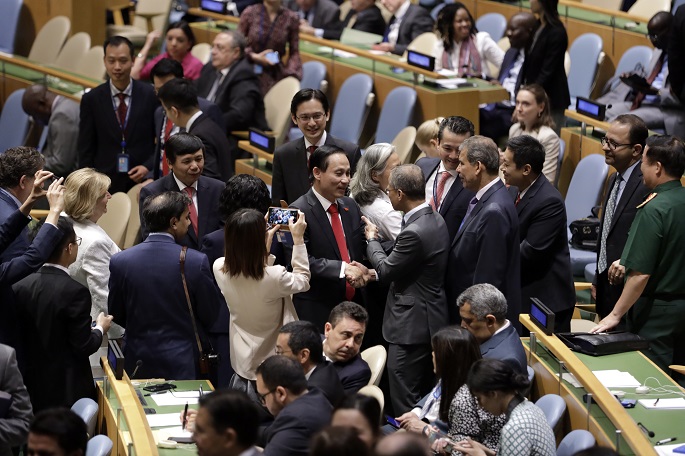UN General Assembly elects 5 new SC members
Published : 08 Jun 2019, 00:27
The UN General Assembly on Friday elected Estonia, Niger, Saint Vincent and the Grenadines, Tunisia and Vietnam as non-permanent members of UN Security Council, which will serve a two-year term starting from Jan. 1, 2020.
The five seats available for election according to the regular distribution among regions were two seats for the African Group, one seat for the Asia-Pacific Group, one seat for the Latin American and Caribbean Group, and one seat for the Eastern European Group.
All members of the United Nations General Assembly attended the secret ballot, with Estonia beating Romania 132-58 to get the seat for Eastern European Group, while the other four candidates ran unopposed.
Niger and Tunisia both received 191 votes in favor, Saint Vincent and the Grenadines 185 and Vietnam 192.
A country must obtain the votes of two-thirds of the member states present and voting at the General Assembly session in order to secure a seat on the Council, regardless of whether the election is contested. This means that a minimum of 129 positive votes are required to win a seat if all 193 UN member states are present and voting.
Out of the five newly-elected members, Estonia and Saint Vincent and the Grenadines have never served on the Security Council.
The new members will replace the retiring members of Kuwait, Peru, Poland, Cote d'Ivoire and Equatorial Guinea.
The 15-member Security Council has five permanent members -- Britain, China, France, Russia and the United States, and 10 non-permanent members elected for two-year terms by the UN General Assembly.
The Security Council's powers include the establishment of peacekeeping operations and international sanctions as well as the authorization of military actions through resolutions. It is the only body of the UN with the authority to issue binding resolutions to member states. The Council held its first session on Jan. 17, 1946.


